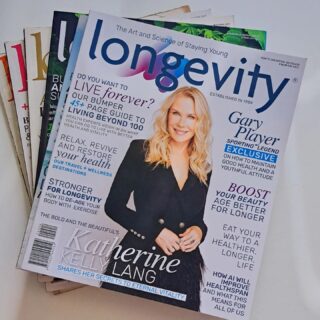Track your longevity and health data using AI technology
The greatest advantage of AI-powered healthcare is customized solutions tailored to individual needs. Data collection has never been easier, and it offers more refined insights about one’s well-being. However, this development has created a major challenge in the form of privacy concerns. Do you know what your data says, and who has access to it? Strangely, we’re often left in the dark about our own health information.
We interviewed Dr. Kathleen Green, product general manager for InUWell (The Institute of Universal Wellcare). This innovative wellness ecosystem introduces precision medicine by merging the physical and digital worlds.

Dr. Kathleen Green
Dr. Green discussed InUWell’s use of cutting-edge health and fitness technologies to personalize health solutions. But more importantly, she revealed how they give individuals control over their health data. After all, our say in what happens to our information is our prerogative. You can find out more about this in our How to Live Beyond 100 bookazine.
How does AI-powered healthcare affect us?
Using AI for health purposes is nothing new. For example, wearable devices make it easy for us to access some of our health data. This affords us better insights into our own experiences and what our health means. Since then, AI’s influence has evolved. In Dr. Green’s opinion, now we can extrapolate information from the data AI collects.
“Not only do we have the technology that allows us to collect this type of information, which has accelerated enormously over the last few years,” says Dr. Green, “But now, we also have the technical know-how, whether it’s from mathematics or an algorithmic perspective, to understand these insights and the data that’s being collected.”
Integrating health data for personalized solutions
Dr. Green shared that InUWell powerfully uses health data to customize solutions for an individual. DNA testing is one way the institute gathers this information. From a healthcare perspective, this eliminates the guesswork that often comes with the traditional one-size-fits-all approach.
Typically, we rely on experimenting with every solution to fix our health woes. Only, we don’t know what is and isn’t working. Now, we can run genetic testing. This means we can see exactly what we need to do to support our health. This means we can forgo the headache of endless trial runs!
Moreover, InUWell integrates the data collected by different practitioners. For instance, one practitioner (like a GP) may have one piece of your health puzzle. While another practitioner (like a psychologist) may have another piece. Obviously, everything is interconnected. So, it makes sense to combine these different systems. Essentially, a holistic approach to treatment can produce better health outcomes.
“The value comes in when you put all the different pieces of the puzzle together. From a consumer perspective, you can see what your holistic picture looks like. From a practitioner’s perspective, they can see the journey that [a patient or customer] has taken on,” explains Dr. Green, “How that works practically is you don’t have to regurgitate the same information every time you go to a different element of your health that you’re looking after.”
Additionally, AI in healthcare supports a preventative and proactive approach. We now see a health challenge before it gets there and possibly the onset of the disease. Naturally, Dr. Green is excited about this prospect, and we are too!
How can we safeguard our data with the growing development of AI in healthcare?
AI concepts, or the development of AI devices, immediately raise the question: “If I share my data, is it safe?”. We certainly want to know who sees our information. Likewise, the worry lies in whether it can be used in a way we disagree with. Consequently, Dr. Green believes we will see a favorable answer to this. Products that allow people to protect their own data and decide who they want to share it with are in sight.
Parallel to this, Dr. Green urges people to assess whether they can trust their sources of information. Technology has made previously unavailable knowledge accessible to us. But it can also easily spread misinformation and false claims. In the medical and health field, it’s imperative to search for accurate evidence.
“[Medical and health info] often take a lot of research and a lot of scientists that dedicate years of their life to a field of expertise,” shares Dr. Green, “I think organizations and products that encompass [credibility] are going to be important. [Moreover], people need to know who to turn to for information that is accurate and valid.”
Grab The Latest Issue of Longevity Magazine
Are you interested in understanding the impact of AI in healthcare and tracking your longevity? Do you want a more personalized approach to your health? 
Access a digital copy of our How to Live Beyond 100 bookazine via Zinio to find out more. Alternatively, readers living in South Africa may purchase a hard copy in select retail stores.
Watch the interview



![women [longevity live]](https://longevitylive.com/wp-content/uploads/2020/01/photo-of-women-walking-down-the-street-1116984-100x100.jpg)










